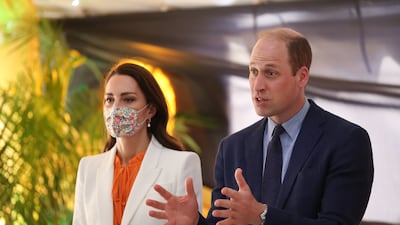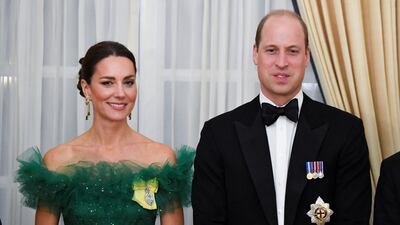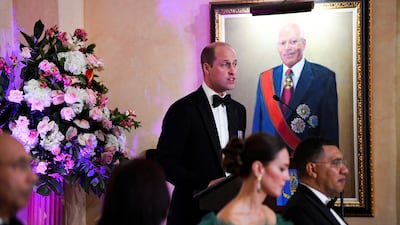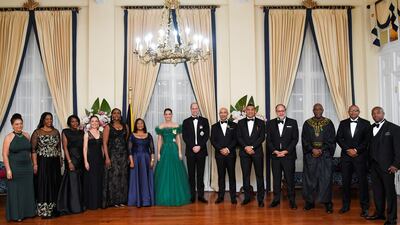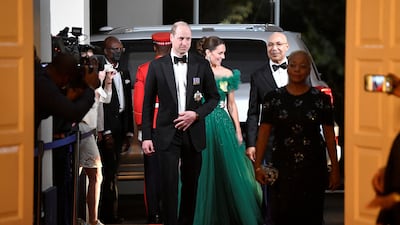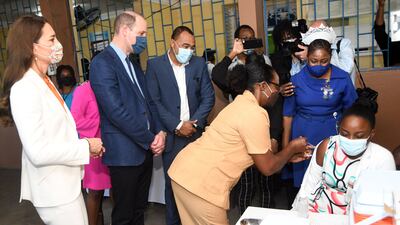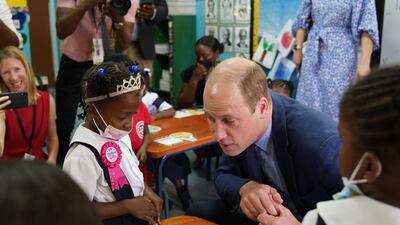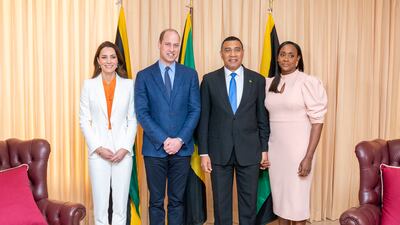Britain’s Prince William has expressed his “profound sorrow” for the role slavery played in Jamaica’s history but stopped short of offering the direct apology demanded by protesters on the Caribbean island.
Queen Elizabeth II's grandson denounced as “abhorrent” the forced transportation of millions of Africans to the Caribbean and North America – a trade which British monarchs either supported or profited from during the 17th and 18th centuries.
The Duke and Duchess of Cambridge's tour of Belize, Jamaica and the forthcoming leg in the Bahamas has prompted demonstrations and statements calling for reparations from the UK royal family.
“I strongly agree with my father, the Prince of Wales, who said in Barbados last year that the appalling atrocity of slavery forever stains our history,” the duke said.
“I want to express my profound sorrow. Slavery was abhorrent and it should never have happened.
“While the pain runs deep, Jamaica continues to forge its future with determination, courage and fortitude.
“The strength and shared sense of purpose of the Jamaican people, represented in your flag and motto, celebrate an invincible spirit.”
He made the comments during a speech at a dinner hosted by Queen Elizabeth II’s representative in Jamaica, Governor General Sir Patrick Linton Allen.
Prince William, 39, did not apologise for the monarchy’s role in slavery, as his father Charles had not during his trip to witness Barbados become a republic.

The future king praised the Windrush generation of Caribbeans who arrived in the UK a few years after the Second World War to help rebuild the nation depleted by six years of conflict.
“We are forever grateful for the immense contribution that this generation and their descendants have made to British life, which continues to enrich and improve our society,” he said.
Jamaican Prime Minister Andrew Holness appeared to suggest his country may be the next nation to break away from the monarchy, telling the Cambridges it was “moving on” and intended to “fulfil our true ambitions and destiny as an independent, developed, prosperous country”.
The Jamaican government has already started the process to transition to a republic, with an official appointed to oversee the work, The Independent newspaper reported.
Former British monarch Elizabeth I was involved with one of Britain’s first slave traders, John Hawkins, while Charles II encouraged the expansion of the industry. Along with his brother the Duke of York, later James II, Charles II invested their private funds in the Royal African Company, which transported Africans across the Atlantic.
As the slavery abolitionists campaigned, they were opposed by the Duke of Clarence, George III’s son, later to become William IV.
The royal and the rest of the pro-slavery lobby would eventually lose the battle when William Wilberforce and other abolitionists succeeded in passing the bill banning the slave trade in 1807.


